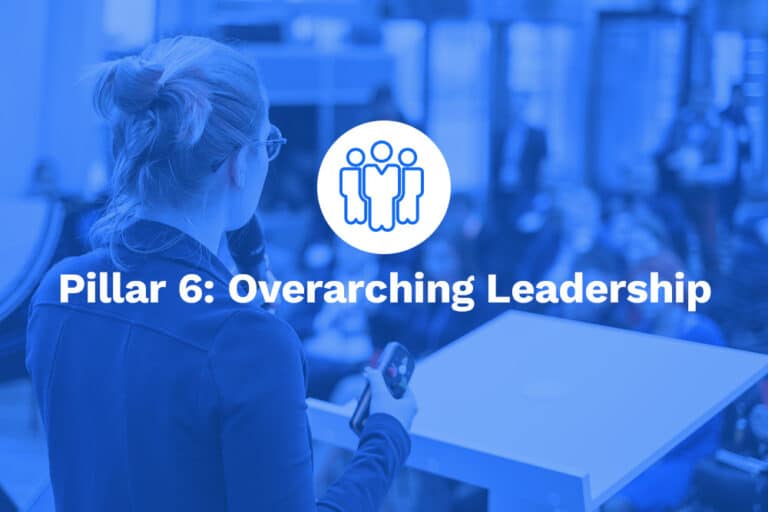Pillar 4 – Influence: Effective Communication
Competency Overview
Communication is a critical competency in the Influence pillar. It’s not just about talking or sending emails—it’s about dynamically using appropriate language across all levels of an organization, understanding that communication styles vary by individual and level, and being able to persuade or convince others to support ideas, agendas, and directions. Effective communication is essential for being respected and viewed as a positive influence by peers and leaders and for delivering executive-level summaries that produce results.
Effective communication in the workplace is linked to significant benefits. For instance, companies with strong internal communication practices are 3.5 times more likely to outperform their competitors, and effective communication can improve productivity by up to 25% (TeamStage, Expert Market). Furthermore, a staggering 86% of employees and executives cite a lack of collaboration and communication as the primary causes of workplace failures (Expert Market).
Leveling Up
Mastering Communication sets you apart as someone who can influence and inspire others. This competency helps you articulate ideas clearly, engage effectively with various stakeholders, and drive initiatives forward. Strong communication skills enhance your ability to lead teams, build relationships, and create a positive impact within your organization. Developing these skills can significantly boost your career, as organizations highly value individuals who can convey their messages effectively and align teams toward common goals.
Why It Matters
- Clarity and Understanding: Effective communication ensures that everyone is on the same page, reducing misunderstandings and increasing efficiency.
- Influence and Persuasion: The ability to persuade or convince others helps in gaining support for initiatives and driving change.
- Relationship Building: Good communication fosters strong relationships with peers, leaders, and stakeholders, enhancing collaboration and teamwork.
- Executive Presence: Delivering clear and impactful executive-level summaries helps in making informed decisions and achieving organizational goals.
Competency in Action
- Dynamically Uses Appropriate Language Across All Levels of Organization
- Common Pitfalls to Avoid: Using jargon or overly technical language, failing to adjust communication style for different audiences, and not being clear and concise can lead to misunderstandings.
- Benefits: Using appropriate language ensures that your message is understood by everyone, regardless of their position or background.
- Understands Communication is Unique by Both Individual and Level
- Common Pitfalls to Avoid: Ignoring individual communication preferences, applying a one-size-fits-all approach, and not considering the level of the audience can reduce effectiveness.
- Benefits: Tailoring communication to individual and audience levels ensures that your message is relevant and impactful.
- Ability to Persuade or Convince Others to Support Idea, Agenda, Direction
- Common Pitfalls to Avoid: Being overly aggressive, not listening to others’ viewpoints, and failing to build a compelling case can hinder persuasion.
- Benefits: Persuading others effectively helps in gaining support for your ideas and initiatives, driving organizational success.
- Respected and Viewed as Positive Influence by Peers & Leaders
- Common Pitfalls to Avoid: Being inconsistent, lacking transparency, and failing to build trust can damage your reputation.
- Benefits: Being seen as a positive influence enhances your ability to lead, inspire, and motivate others.
- Successful with Executive Level Summaries that Produce Results
- Common Pitfalls to Avoid: Providing too much detail, lacking focus, and not aligning with strategic goals can reduce the impact of executive summaries.
- Benefits: Delivering clear and concise executive summaries ensures that key messages are communicated effectively, aiding in decision-making and strategy implementation.
How to Enhance This Competency
- Develop Active Listening Skills: Practice active listening to understand others’ viewpoints fully before responding. This builds trust and ensures effective communication.
- Actionable Tip: During meetings, focus on listening more than speaking. Summarize what you’ve heard to confirm understanding.
- Tailor Your Message: Adapt your communication style based on the audience. Use different approaches for different levels within the organization.
- Actionable Tip: When preparing a presentation, consider who will be in the audience and adjust your language and content accordingly.
- Enhance Persuasion Techniques: Learn and practice techniques for persuasion and influence. This includes building a strong case, using evidence, and appealing to emotions.
- Actionable Tip: Use storytelling to make your points more relatable and memorable. Back up your arguments with data and real-life examples.
- Build Strong Relationships: Invest time in building relationships with peers and leaders. Trust and respect are foundational to effective communication.
- Actionable Tip: Engage in regular one-on-one meetings with team members and leaders to build rapport and understand their perspectives.
- Improve Clarity and Conciseness: Focus on delivering clear and concise messages, especially in executive summaries. Avoid unnecessary jargon and keep to the key points.
- Actionable Tip: Use bullet points and visual aids to highlight key messages in presentations and reports.
- Use Feedback for Improvement: Seek feedback on your communication style and effectiveness. Use this feedback to make continuous improvements.
- Actionable Tip: After presentations or meetings, ask for constructive feedback from a trusted colleague or mentor.
Unlocking Potential
- Enhanced Influence: Mastering Communication increases your ability to influence and inspire others, driving positive change within the organization.
- Career Advancement: Strong communication skills are essential for leadership roles and can significantly boost your career growth.
- Improved Team Dynamics: Effective communication fosters better teamwork, collaboration, and overall productivity.
By developing and honing the competency of Communication, you ensure that you can articulate ideas clearly, engage effectively with various stakeholders, and drive initiatives forward. This skill is essential for mastering your role and evolving in your career, preparing you for leadership positions where effective communication is crucial.
About Leader Loop: Leader Loop crafts actionable, competency-focused articles to accelerate your career growth. Our expert-written content provides practical strategies for leadership, team management, and professional development. Whether you’re a seasoned manager or an ambitious individual contributor, our articles deliver the insights you need to excel in today’s workplace.




